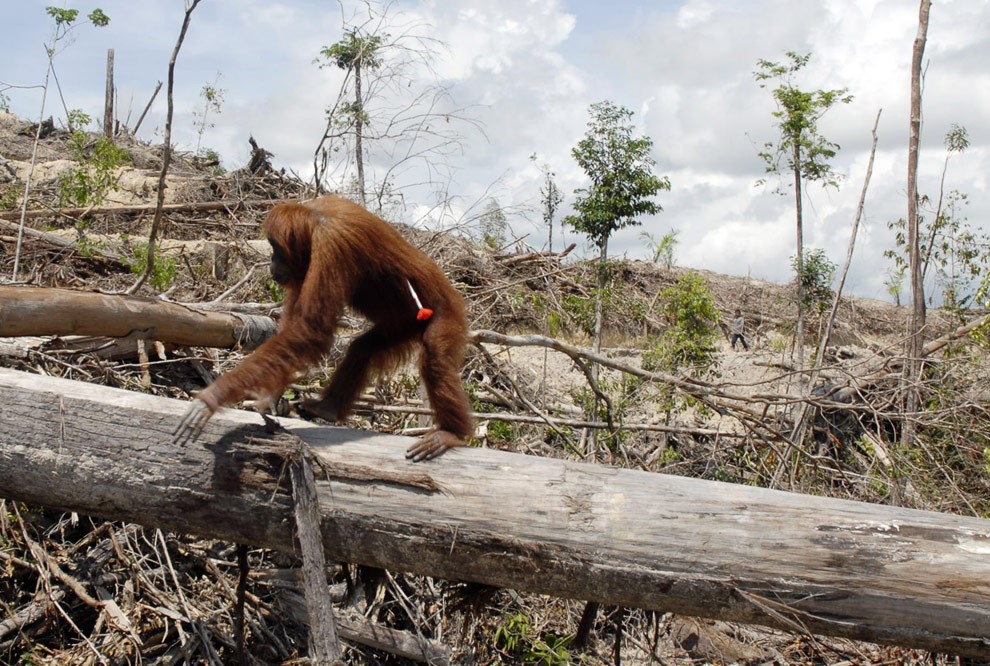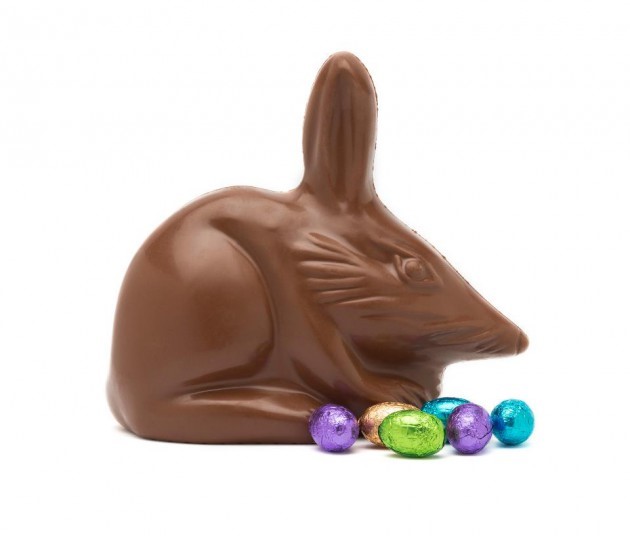Easter eggs are an integral part of Easter celebrations, which means chocolate. Have you ever wondered what the potential environmental impact of Easter and Easter eggs is on the environment? Like most festive events, Easter typically can involve large amounts of packaging which generally ends up in landfill and the delicious chocolate treat we share with family and friends may contain palm oil, a product with a large environmental footprint.
The Threat of Palm Oil
Palm oil plantations have been established in the tropics where the African Oil Palm tree grows. It is estimated that 85% of global palm oil production and exportation occurs in Indonesia and Malaysia. These plantations are typically created through the clearing of 1000s of hectares of natural rainforest. Deforestation in these regions has caused the displacement and loss of thousands of animals. Orangutan populations have been particularly impacted with 90% of their habitat removed. In the last 20 years, the decline of Orangutan populations has been directly attributed to the growth of the palm oil industry, a factor which has led to their listing as “Critically Endangered” on the IUCN Red List.

What We Can Do
We all can play a role in protecting Orangutan’s and Orangutan habitat each time we go to the shop simply by selecting palm oil free or sustainably sourced palm oil products.
Organisations that are involved with palm oil, whether that be manufacturing, transporting, or consuming can be certified as sourcing certified sustainable palm oil (CSPO). Certification is conducted by the Roundtable on Sustainable Palm Oil (RSPO), a non-profit organisation that develops and implements international standards for sustainable palm oil.

By buying CSPO products you are protecting the environment. When buying Easter Eggs this year look for chocolate which uses sustainably sourced palm oil. Alternatively, you can use Easter egg moulds and chocolate blocks and make your own sustainable and environmentally responsibly Easter treats! This way you are consuming a product with less packaging and less processing. For a list of chocolates which are palm oil free or use 100% sustainable palm oil, visit http://www.orangutans.com.au/Orangutans-Survival-Information/Helping-you-buy-responsibly-Palm-oil-free-alternatives.aspx it include favourites like Whittakers, Nestle chocolate bars, Lindt Excellence and Cadbury Dairy Milk blocks.
Chocolate for a Cause
If you don’t feel up to making sustainable chocolates this year, consider chocolates with an environmental benefit such as the Chocolate Bilby. By buying chocolate bilbies from Haigh’s Chocolate or Darrel Lea you are supporting increased awareness of bilbies and funding for their conservation. Bilby populations have seen range declines of 80% from pre-European ranges as a consequence of predation from introduced pests such as feral cats and foxes, and competition for habitat with rabbits. This year the Margaret River Chocolate Company is selling Chocolate Quokkas. Part proceeds from the sale of chocolate quokkas goes towards the Rottnest Foundation to fund quokka research and conservation. Get in quick because these chocolate treats often sell out quickly! For more information on bilby conservation visit the Save the Bilby Fund.

Egg and Easter Decorations
There are lots of alternative options available for decorations. Perhaps instead of using real eggs for decoration, try ceramic or wood eggs that can be reused from year to year; if you are going to use real eggs for decorating, then try to buy sustainably sourced or free range eggs. Using baskets made from natural materials, sourced from op-shops or making your own is a great alternative. These can also be reused each year or for other uses throughout the year like picking vegetables and flowers.
Easter Egg Hunt
A favourite tradition during the Easter holiday is an Easter egg hunt, searching for little chocolate treasures in the house or garden. Use this as an excuse to get kids (and other family members) in the garden and while you’re at it, start a new tradition and plant a tree, herb or shrub after you finish your egg hunt. Planting native species provides habitat and food for our native fauna and stores carbon slowing climate change. Autumn is a great time of year to plant because the cool and wet weather gives plants a great opportunity to take root before the heat comes back in Summer. There are several great nurseries in Perth which specialise in native plants including Zanthorrea Native Plant Nursery.
Happy Easter from the team at Integrate Sustainability!
References:
- Borneo Orangutan Survival Australia, 2012, Helping you buy responsibly-Palm oil free and CSPO products – http://www.orangutans.com.au/Orangutans-Survival-Information/Helping-you-buy-responsibly-Palm-oil-free-alternatives.aspx
- IUCN Red List of Threatened Species, 2016, Pongo pygmaeus ssp. Pygmaeus – http://www.iucnredlist.org/details/39781/0
- Planet Ark, 2016, Have An Eco-Easter – http://planetark.org/news/display/1044
- Rabbit Free Australia, 2017, Current Awareness Activities – http://www.rabbitfreeaustralia.com.au/our-projects/current-awareness-activities/
- Real Simple, 2017, 6 Homemade Easter Egg Dye Recipes – http://www.realsimple.com/holidays-entertaining/holidays/more-holidays/homemade-easter-egg-dye
- Save The Bilby Fund, 2016, Bilby Conservation – http://savethebilbyfund.com/about-bilbies/conservation
- Say No To Palm Oil, 2017, What’s The Issue – http://www.saynotopalmoil.com/Whats_the_issue.php
- Roundtable on Sustainable Palm Oil, 2017 – http://www.rspo.org
